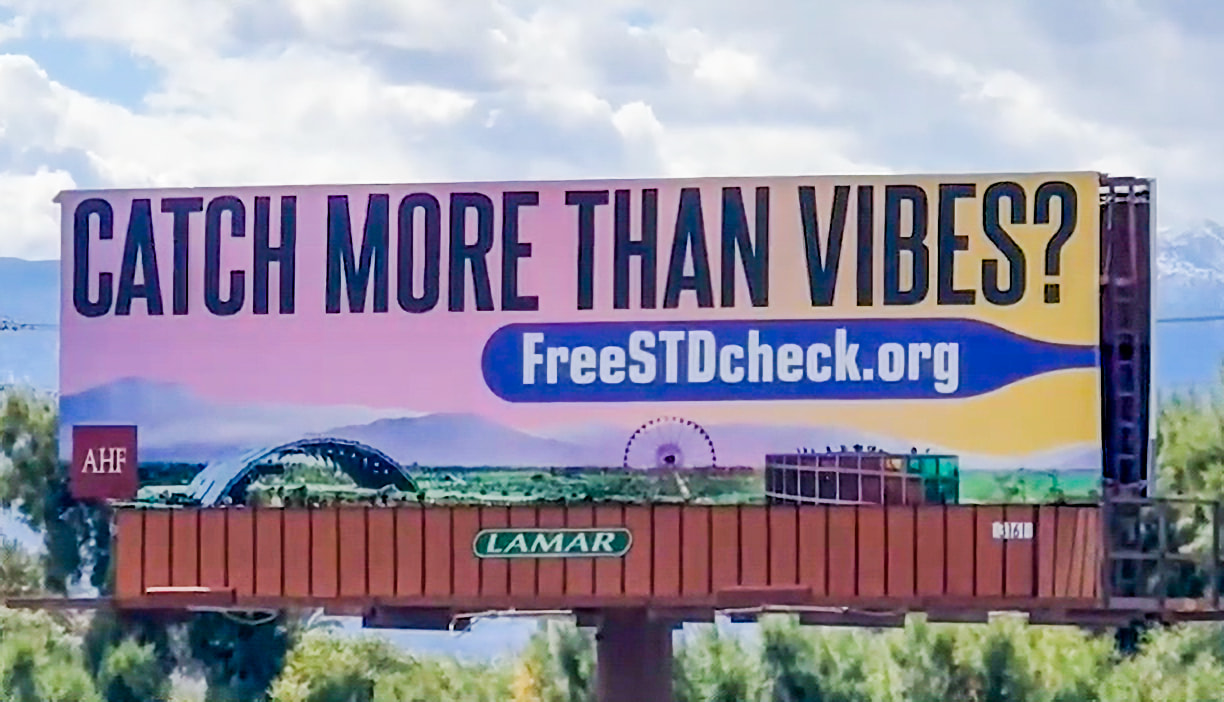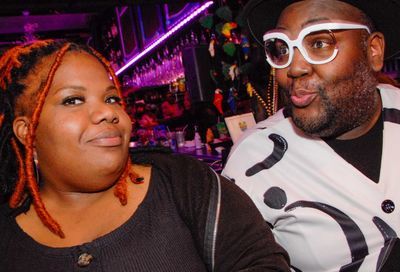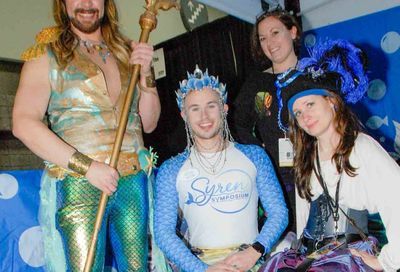PFOX’s Pre-Emptive Strike?
LGBT advocates question veracity of ex-gay group's billboard in Virginia

When outrage erupted over the appearance of a billboard along Interstate 95 in the Richmond area, paid for by the ex-gay organization Parents and Friends of Ex-Gays and Gays (PFOX, which claims “no one is born gay,” Richmond resident Apryl Prentiss felt she had seen this movie before.
Prentiss, deputy policy director for the Alliance for Progressive Values, previously testified before the D.C. Council in June in favor of a bill, passed unanimously in December, that prohibits the practice of conversion or “reparative” therapy on those under the age of 18, and plans to testify in favor of a similar bill slated to go before Virginia’s General Assembly this year. But Prentiss’ support for the measure goes beyond just natural progressive-leaning, pro-LGBT advocacy. Rather, for Prentiss, the fight is personal, stemming from her own experience in conversion therapy during her early 20s.
“From the time I was 19 to about 27, I was living in an emotional, psychological hell,” says Prentiss, who grew up in a conservative Christian home in Virginia Beach and served as a religious youth group leader during her teens and early 20s.
Prentiss often talks of her own experiences in conversion therapy, noting that, like the message contained on the Richmond billboard, advocates of conversion therapy start from the assumption that no one is born gay. This belief prompts them to go “digging for a cause,” something negative that can be used to explain a person’s homosexual feelings. Because of her struggle to align her Christian faith with her sexual orientation, Prentiss says she figured she’d either be single and celibate for the rest of her life, or would try to “make things work” with a man. But she says a turning point for her was when, as a youth group leader, she found herself telling a 17-year-old girl in a similar situation of her potential options.
“It started to sicken me,” Prentiss says of her advice to the girl.
Although Prentiss later broke away from her attempts to become “ex-gay,” and eventually managed to settle down with a partner, she says she feels compelled to speak out on the issue, because conversion therapy “preys on a vulnerable population who’s already at risk.”
As for the billboard, Prentiss sees a political motive behind it: namely, stopping — or, at least, trying to intimidate — General Assembly lawmakers who might be considering support for Del. Patrick Hope’s bill that would ban licensed therapists from practicing conversion therapy on those under the age of 18. Even though the therapy would not be banned for legal adults who wish to subject themselves to such treatments, Prentiss says ex-gay advocates often try to muddy the waters by claiming the bill is broader than it actually is or will have unintended consequences for children with same-sex attraction.
“I absolutely believe this was a pre-emptive strike,” Prentiss says of the billboard. “There’s no doubt in my mind.”
She also urged General Assembly legislators of all parties to support the measure, and not to be swayed by arguments that enrolling children in reparative therapy is somehow a “family rights issue.” But she added that Democrats, in particular, due to their party’s stance on LGBT rights, should all come out in favor of Hope’s bill, even if the Republican majority in both chambers eventually scuttles it.
“This isn’t just an LGBT issue, it’s a mental health issue,” Prentiss says. “I’m not sure what the hindrance is, except for the fact that opponents misrepresent it.”
The PFOX billboard itself purports to show a picture of twins, one straight and one gay, to imply there is no genetic predisposition to homosexuality, relying on a study by the Northwestern University Department of Psychology in 2000 that dealt with identical twins of differing sexual orientations. When the billboard first appeared, several local organizations objected to the message and organized against it, with hundreds of LGBT people and allies gathering at the Gay Community Center of Richmond posing for a group photo that could be used for a billboard to counter PFOX’s message, as first reported by GayRVA.
But PFOX’s billboard ran afoul of the Northwestern study’s author, J. Michael Bailey, who told the website LGBTScience.org that he believes that male sexual orientation is inborn and “resistant to change,” and that, although it is not genetic, homosexuality is not a learned behavior. The billboard’s message took another hit when the South African male model whose image was used for the billboard, Kyle Roux, revealed to Virginia news outlets that he was openly gay and not a twin, which seemed to undercut the entire premise of PFOX’s message.
In a statement posted on their website, PFOX was defiant and included follow-up posts on their blog telling the story of a pair of female twins, one of whom identified as lesbian and was able to, with the help of her twin, renounce her homosexuality.
“We find it interesting that the attacks against the billboard and ex-gay community have nothing to do with the facts,” PFOX wrote on its blog. “Identical twins have the same genes or DNA. They are nurtured in equal prenatal conditions. If homosexuality is caused by genetics or prenatal conditions and one twin is gay, the co-twin should also be gay. Because identical twins are always genetically identical, homosexuality cannot be genetically dictated. No one is born gay.”
“Every person seeking positive life change needs the love and support of family, friends, the community and the church,” PFOX continued in its statement. “Thousands of individuals have made the decision to leave the homosexual life and will attest to the fact that change is possible. PFOX believes people deserve to know the truth and believes respecting the lives of those who have made a decision to seek change is part of building a tolerant society.”
Those points have been echoed in media appearances by Chris Doyle, a licensed counselor and former PFOX board member and the head of the Maryland-based International Healing Foundation, which practices conversion therapy for people with unwanted same-sex attraction, and David Pickup, a therapist and advisor to PFOX’s board of directors. Both Doyle and Pickup claim that they have successfully fought against unwanted same-sex attraction.
But for Prentiss, the issues concerning the veracity of the billboard only highlight the problems with conversion therapy. She says, from her experience, that ex-gay advocates rely on vague generalizations and dishonest portrayals of gays and lesbians as promiscuous and unable to have healthy relationships to promote their cause.
Says Prentiss, “In this incident, PFOX gave a picture of who they are and what their methodology is.”
Support Metro Weekly’s Journalism
These are challenging times for news organizations. And yet it’s crucial we stay active and provide vital resources and information to both our local readers and the world. So won’t you please take a moment and consider supporting Metro Weekly with a membership? For as little as $5 a month, you can help ensure Metro Weekly magazine and MetroWeekly.com remain free, viable resources as we provide the best, most diverse, culturally-resonant LGBTQ coverage in both the D.C. region and around the world. Memberships come with exclusive perks and discounts, your own personal digital delivery of each week’s magazine (and an archive), access to our Member's Lounge when it launches this fall, and exclusive members-only items like Metro Weekly Membership Mugs and Tote Bags! Check out all our membership levels here and please join us today!
























